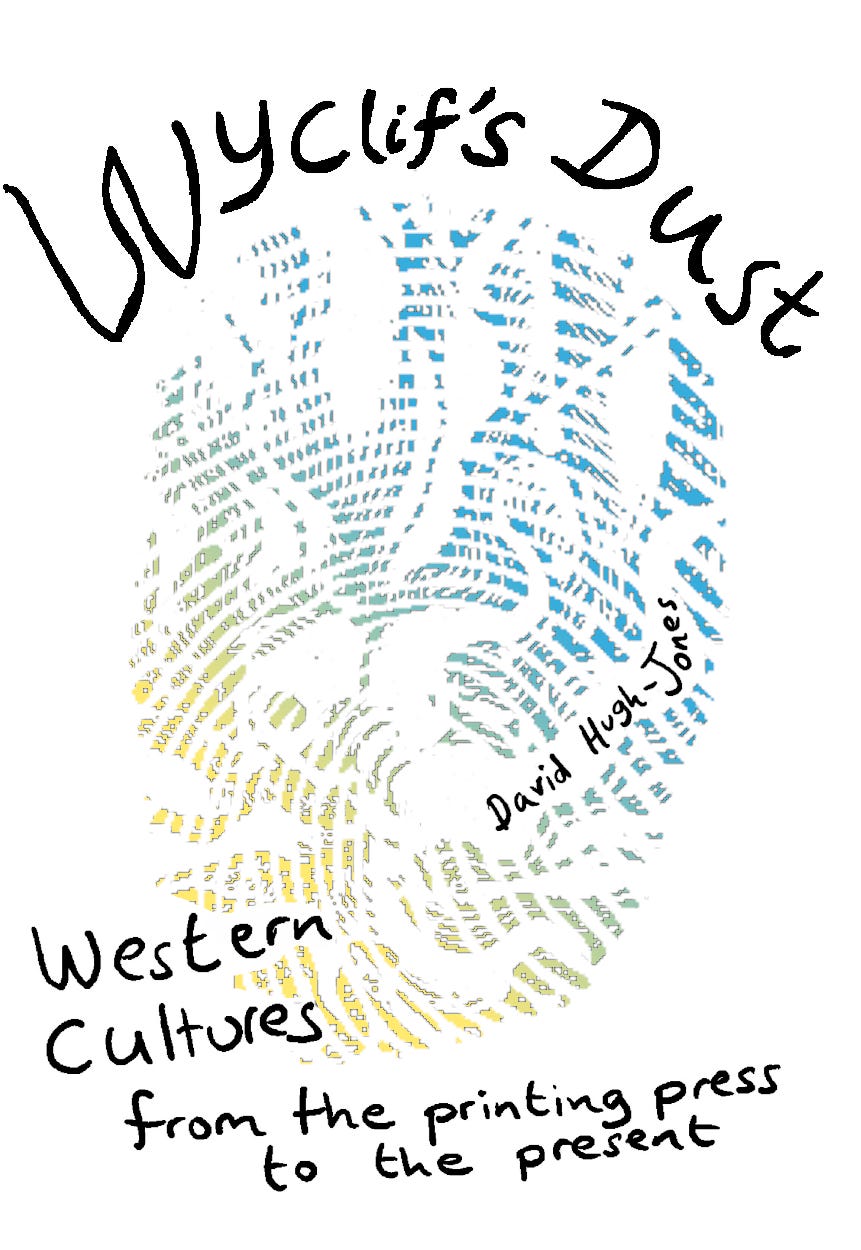So let me try to explain to you why university DEI requirements are bad. And if you are already thinking “Yes! DEI! Grr!”, then this post is not aimed at you. It’s for people who think more like this:
Someone from Japan who was living in the US once told me the following anecdote. She was on the bus in New York and a man asked her if she was a Christian. She said no, she was a Buddhist. So he started ranting at her and telling her she was going to Hell, and a woman sitting nearby quietly leaned over and said “Forgive him. He doesn’t know about diversity.”
It’s a commonplace that wokeness is a kind of religion. That’s true in some ways, but it is usually meant negatively. The other side of the coin, which this story brings out nicely, is that these values have genuine spiritual benefits! Understanding others who are different from you really can bring enlightenment and make you a better person.
Sam Harris was the most eloquent of the New Atheists. From the introduction to Letter To A Christian Nation:
We agree, for instance, that if one of us is right, the other is wrong. The Bible is either the word of God, or it isn't. Either Jesus offers humanity the one, true path to salvation (John 14:6), or he does not….
Of course, there are Christians who do not agree with either of us…. From their point of view, you and I have both misunderstood what it means to be a person of faith. There is, we are assured, a vast and beautiful terrain between atheism and religious fundamentalism that generations of thoughtful Christians have quietly explored. According to liberals and moderates, faith is about mystery, and meaning, and community, and love.
Part of the New Atheist criticism of religion was a critique of religious moderates. The argument was that by fudging the issue, they provided a cover for extremists — the people Sam Harris was writing to, who thought he was going to Hell.
It is a bit like that for diversity, equity and inclusion today. These concepts have their unexceptionable versions, which everyone can agree with, and their extremist versions. The ambiguity between these two is key.
So, if you are thinking “whatever can be wrong with asking academics to tolerate diversity, or to be inclusive towards different groups?” then let me give you a helpful parable. Imagine that academic politics is rather different — perhaps in the US, Ron DeSantis has become President — and that when you apply for your next job, you are asked to provide a statement of Freedom, Tradition and Patriotism (FTP).
Now, what could be wrong with that? Surely we can all agree that freedom, not least academic freedom, is vital, even if we disagree deeply about how to parse it. Tradition? Who doesn’t like their family Christmas, Hanukkah, Kwanzaa, or Festivus (the festival for the rest of us)? And don’t we all care for our country’s good, although again we each understand it very differently?
You are probably thinking this is nonsense, and you are not wrong. Even though there are unexceptionable versions of Freedom, Tradition and Patriotism, the fact remains that it will be much, much easier for a red-blooded conservative to fulfil the FTP criteria than for you, a liberal. Your story will be half-baked. You will probably have to pad it out by saying nice things, which you will convince yourself are sincere, about this ideology. For a genuine right-wing radical, on the other hand, it is bread and butter. He’ll probably have to stop himself writing too much. And he’ll have an especially easy time of it, because the FTP specialist on faculty, who will be reading your statements, is a card-carrying Proud Boy.
The result will be political bias in academic hiring. (Why would I imagine that could be a problem?)
This is how I think of DEI. Its concepts are inherently ambiguous. They have a motte and bailey built in.
Take equity. Equity is for sure more extreme than equality, as the meme suggests, but it’s also ambiguous and unclear, in a way that say “equality of outcome” is not. If academics had to write Equality Of Outcome statements, explaining why massive redistribution is a moral necessity, that would be a clear enough restriction on freedom of thought that they would protest. (There are some libertarians in philosophy departments.)
Instead, people each interpret equity in their own way. There is a vast and beautiful terrain between equality of opportunity and of outcome, that generations of thoughtful faculty have quietly ignored.
Perhaps this is a general pattern of discursive conflict. The extreme version of your concept is what you really want, but it’s too strong to be popular. The weak version is widely accepted, but it’s milquetoast. What you need is an ambiguous version. Its imprecision is part of its value. Can this be a stable equilibrium, I ask myself? Well, maybe it is until someone like me points it out.
If you enjoyed this, you might like my book Wyclif’s Dust: Western Cultures from the Printing Press to the Present. It’s available from Amazon, and you can read more about it here.
You can also subscribe to this newsletter (it’s free):






Well, that thinking like Rosenberg means having an extremist agenda. Tbf maybe I misunderstood. Not being American nor having worked or studied there. But would be intrigued if walking back DEI is not mostly a marketing strategy - that being the case, doesn’t justify or invalidate it’s practice in the first place.
That was a trick. You basically blew raspberries in our direction.